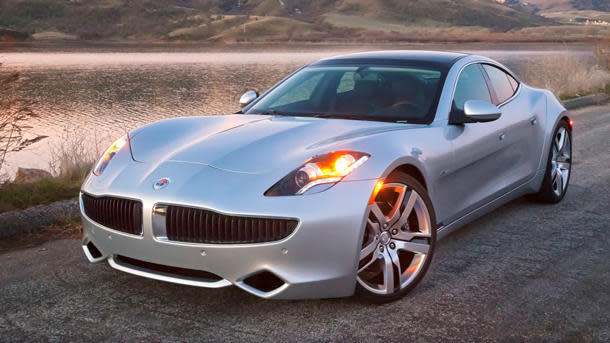 Motoramic
MotoramicFisker Karmas getting new battery packs after Consumer Reports defect
In the latest bit of bad luck for the star-crossed Fisker Karma, the company's battery supplier announced today it would replace the packs in most $107,000 Karmas due to an occasional defect that may have been the cause of the dead Karma bought by Consumer Reports. At this rate, Fisker might want to consider hiring an old priest and a young priest -- and pray for its battery supplier. Supplier A123 Systems says the recall -- which it will pay for, to the tune of $55 million -- was due to a manufacturing problem with the flat lithium-ion battery cells it builds into the Karma. To assuage already cranky Karma owners about further quality problems, Fisker also extended the warranty on the Karma from five years and 50,000 miles to six years and 60,000 miles.
But the problems say less about Fisker's future than A123, a Massachusetts startup with battery plants in Michigan and China that's been one of the few U.S.-grown battery makers to survive the recession. I profiled the company several years ago; it's the epitome of a feel-good story about brainy scientists and savvy business people building an American company that can create jobs, compete globally and tackle one of society's biggest problems.
The trouble is that A123 hasn't been able to make any money building batteries; it's losses for fiscal 2011 totaled $257.7 million on revenues of $159 million. The company was down to $187 million of cash at the end of the year, and was still spending research money on designing new battery packs. While its client list includes General Motors and BMW, Fisker represents at least one-fifth of projected revenues -- a precarious bet even after writing down forecasts a few months ago.
Most major automakers have paired with a larger battery supplier now, and with a couple of exceptions all of them are either based in Europe, Japan or South Korea. GM could have picked A123 to build batteries for the Volt -- but chose South Korea's LG Chem instead, in part because the government of South Korea had lowered LG's cost by building its research center. There wasn't much room for A123 to make mistakes before, and today's announcement shows that no matter how noble, there's no margin for error left.

 Yahoo Autos
Yahoo Autos 
